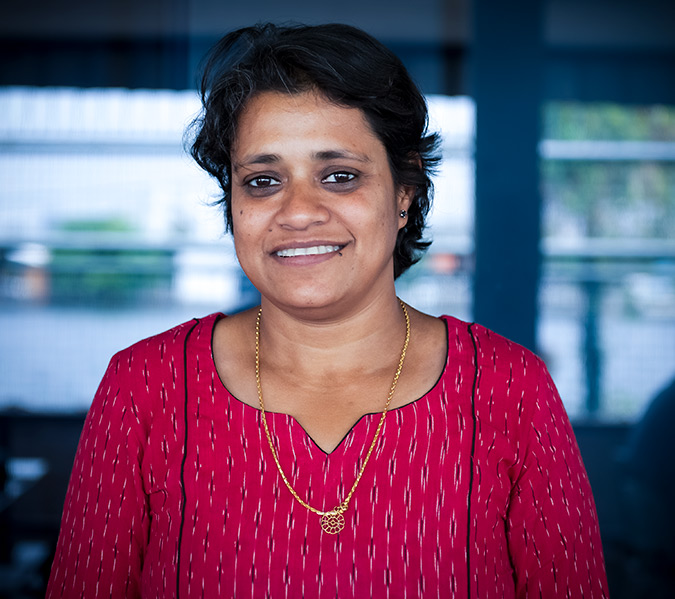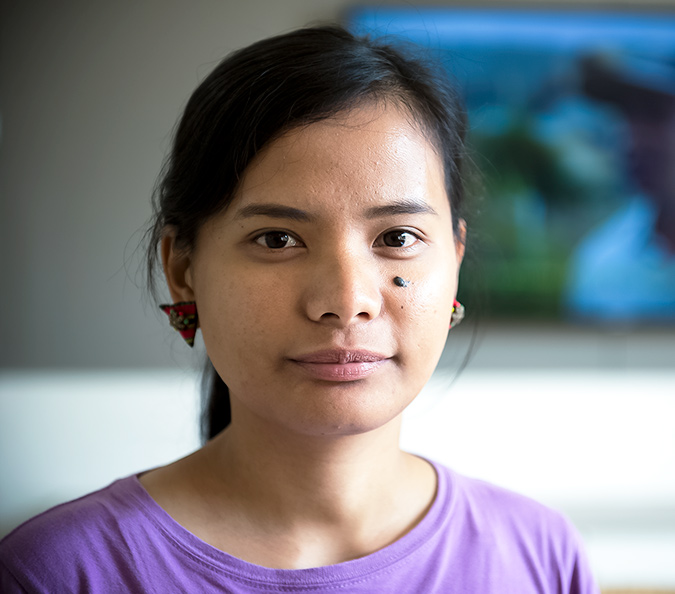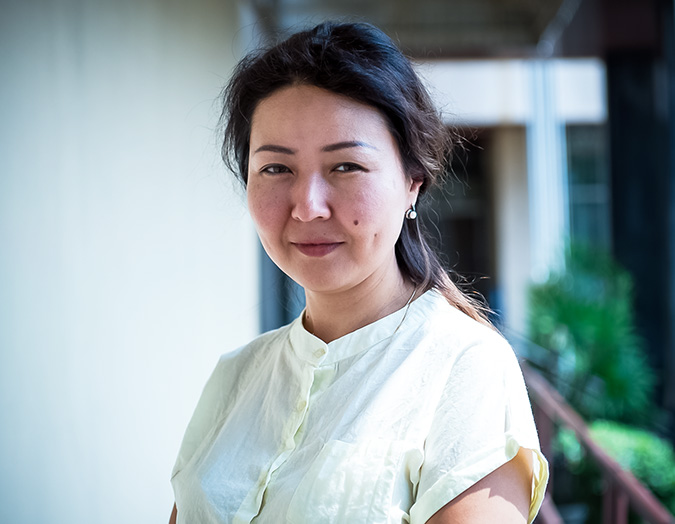Women taking up the fight against oppression across Asia-Pacific
Date:
Authors: Parista Yuthamanop
Women working in Asia and the Pacific civil society organizations are fighting to defend the rights of marginalized people, safeguard the environment and build sustainable planet, often at great personal risk.
More than 20 of them met on 22 February in Bangkok to discuss challenges and agree on proposals to be forwarded to Asia Pacific's preparatory meeting of the 62nd session of Commission on the Status of Women.

Sharanya Nayak, a programme advisor of the RITES Forum, said the advocacy group is fighting for recognition and rights of indigenous women in the eastern Indian state of Odisha, where their access to the commons such as hills and forests have been made difficult by security officials and expansion of businesses.
Over the past decade, the resource-rich Odisha state, once a stronghold of insurgency force, has seen the presence of security officials rise dramatically. According to media reports, there have been alleged cases of violence against local women by the security officials. The media reports suggested that big businesses are behind the difficulties and many violence cases against the indigenous women.
"The central government could ideally promise to stop the land and forest grabs and ensure better access to justice for the indigenous community," Ms Nayak said.
She said RITES Forum is focusing on mapping the forest for density and diversity in hope to designate some areas around the villages as "community forest" which will secure the community's rights to immediate food security and livelihoods. The lack of access to the forest also stifles the community's efforts to address other challenges such as climate change.
"If there is an initiative to grow hardier crops that can better withstand heat and low rainfall, then this is of little use if the people cannot access the hills where they are meant to plant those crops," Ms Nayak said.

"After 20 years' experience, I am convinced that the indigenous way of life has always been climate-resilient, sustainable and self-sufficient. I really think that a greater understanding of and respect for their way of life can teach us something about how to achieve the elusive goal of infinite growth on a finite planet."
Similarly, the Cordillera Women's Education Action Research Center in the Philippines is fighting against land grabs by corporations. Alma Sinumlag, the group's research and publication coordinator, said it works to protect the people's right to food production and the right to be informed of the so-called "development programmes" by large corporations in the territory of their ancestors. These projects have affected the people's way of life and the environment.
As a result, the leaders and members of the group face various forms of threats and harassments in the course of their work. They allegedly include trumped-up legal charges, Ms Sinumlag said.
"We are resolved that silence is not an option," she said. "We remain steadfast in building women's and people's movements. We remind our governments here today of the social contract: as duty bearers you are accountable for the systematic violation of our land rights, for our loss of access and control over our natural resources, and for assault, harassment, and threats against women human rights defenders by both state and non-state actors."
Woman leaders of Asia Pacific civil society organizations also fight against repressive social norms to help other women stand on their own feet. SHAZET, an organization which has been striving since 2005 to address the economic, social and political challenges facing women in Kyrgyzstan is an example.
Patriarchal norms dominate the country, especially in the countryside, with women expected to be less educated, powerless, voiceless and to accept the status quo.

"If women work for money, or even say they want to, they face psychological or physical abuse from their partner or family. It's not accepted in society for a woman to be a breadwinner," said Aijamal Bakashova, who works for SHAZET. "The legal guarantees of gender equality are often not implemented, and sometimes incompatible with customary laws and practices."
SHAZET aims to help women become economically independent by giving them a comprehensive assistance including credit lines from public funds, training and other support to set up businesses.
Aiymhan's is a SHAZET success story. After her family was left displaced and destitute by conflict, she received training from SHAZET at the age of 21 and grant of USD 100 two years later. She went on to establish a retail business, buy a plot of land and a house for her parents, and to build her own family. She did not stop there and has gone on to help empower other women.
"She has taken on a kind of corporate social responsibility in the community," Bakashova said. "She engages other women economically, by employing them in her business. She also wants to get involved in organizing credit lines to rural women using public funds."
But difficulties persist. Aiymhan's husband refused to tolerate her ambitions to be economically active, and they are now divorced. "She made her choice," Bakashova said.